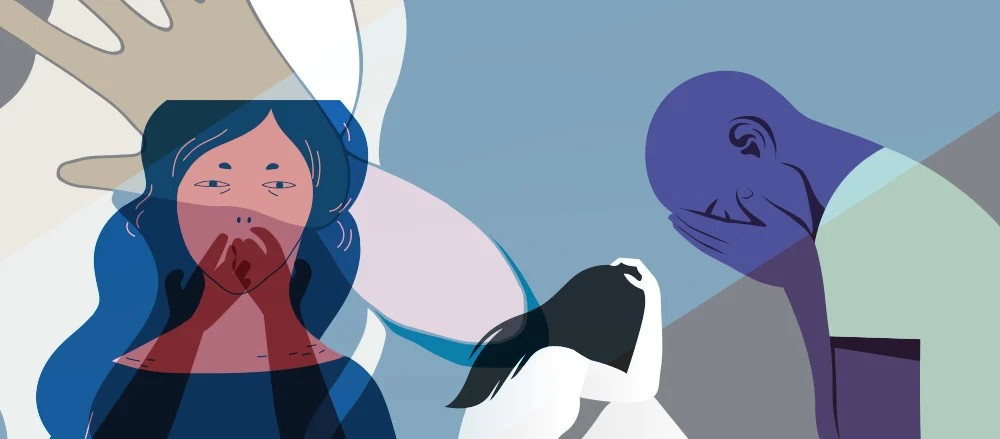Navigating relationships can be complex, and sadly, not all relationships are free from challenges such as those found in an abusive relationship. As a therapist specializing in trauma and anxiety, I frequently encounter clients who grapple with the aftermath of relational trauma. One recurring question that arises is: How can I tell if I am in an abusive relationship?
It is crucial to understand that anyone can find themselves in an abusive relationship. Abusers often start off charming, and their attention might initially feel flattering. However, it is important to stay vigilant and recognize the red flags early on.
Recognizing the Red Flags
Here are some key questions to help you assess the health of your relationship and determine if you might be in an abusive relationship:

Do Their Actions Match Their Words?
In any relationship, words are significant, but actions often reveal the true nature of someone’s character. Abusers in an abusive relationship might use charming words, promises, or apologies to deflect responsibility and manipulate their partner into believing that they will change. For instance, if your partner frequently apologizes for their behaviour but fails to make any meaningful changes, it’s a clear indicator of a potential problem. This mismatch between words and actions can lead to a cycle of false hope and disappointment. A healthy relationship, on the other hand, is characterized by consistent actions that align with verbal commitments. Watch for consistency in behaviour—real change is evident through actions over time, not just promises.
Is There Genuine Empathy?
Empathy is the ability to understand and share the feelings of another. In a healthy relationship, both partners should be able to empathize with each other’s emotions. If you find yourself hurt or distressed and your partner responds with indifference or dismisses your feelings, it is a concerning sign, especially in an abusive relationship. For example, if you are upset about something important and your partner reacts with sarcasm or defensiveness instead of compassion, this lack of empathy can be deeply damaging. Abusers often lack the ability to empathize and may use your feelings against you, making you feel like your emotions are invalid. In contrast, a healthy relationship is marked by mutual understanding and compassion.
Do They Take Responsibility?
Taking responsibility for mistakes and conflicts is a hallmark of a healthy relationship. Everyone makes errors, but it is the approach to resolving these mistakes that matters. In an abusive relationship, abusers often deflect blame onto others or turn the situation around to make themselves the victim. This behaviour can prevent you from addressing the real issues and can leave you feeling confused and blamed for problems that aren’t yours. For example, if a disagreement arises and your partner blames you for their angry outbursts, rather than acknowledging their role in the conflict, it indicates a lack of accountability. Healthy relationships involve both partners working through issues together with a sense of responsibility and mutual understanding.
Is There Mutual Respect?
Respect is a foundational element of any healthy relationship. It involves valuing each other’s boundaries, opinions, and individuality. In an abusive relationship, you might encounter behaviours like belittling comments, dismissive attitudes, or a lack of consideration for your personal space and boundaries. For instance, if your partner frequently mocks your opinions or disregards your personal limits, it’s a clear violation of respect. A healthy relationship thrives on mutual respect, where both partners value and honour each other’s boundaries and individuality.
Can You Trust Them?
Trust is essential for a feeling of safety and security in a relationship. If your partner engages in behaviours that cause you to feel uneasy or fearful, such as secretive actions or manipulative tactics, this undermines trust, particularly in an abusive relationship. For example, if your partner frequently invades your privacy by checking your phone or monitoring your activities without your consent, it is a major red flag. Feeling safe and secure in a relationship should be a given, not something you constantly question. A healthy relationship fosters an environment of trust and respect. If trust is consistently breached, it’s a significant concern.
Do They Support Your Other Relationships?
A healthy relationship should support and encourage your connections with friends and family. If your partner consistently criticizes or tries to isolate you from your loved ones, it is a sign of controlling behaviour typical in an abusive relationship. For example, if your partner makes derogatory comments about your friends or tries to limit your interactions with family, it can be a tactic to gain control and isolate you from your support system. Healthy relationships celebrate and support your other relationships, understanding that these connections are vital to your well-being.
Any Intimidation or Harm?
Intimidation, threats, or any form of harm are clear indicators of an abusive relationship. This can include physical violence, emotional manipulation, financial threats, or any behaviour that makes you feel unsafe or threatened. For instance, if your partner uses threats of violence, financial control, or emotional manipulation to maintain power over you, it is unequivocally abusive. It’s important to recognize that substances like alcohol or drugs do not excuse abusive behaviour; abuse is a choice, not a consequence of external factors. Ensuring your safety and well-being is paramount, and any form of intimidation or harm should be addressed immediately. A healthy relationship is free from intimidation and harm.
How Do You Feel in the Relationship?
Ultimately, your feelings about the relationship are crucial. If you consistently feel devalued, anxious, or unhappy, it is essential to reflect on the reasons behind these feelings. For example, if you find that interactions with your partner consistently leave you feeling diminished or insecure, it is important to consider whether this is a healthy environment for you. Your emotional well-being should be a priority, and if the relationship consistently undermines your self-esteem or causes distress, it is worth evaluating whether it’s time to make changes for your own health and happiness. A healthy relationship should make you feel valued and content, not constantly anxious or devalued.
Seeking Support and Making a Change in an Abusive Relationship
Recognizing the signs of an abusive relationship is the first step towards making positive changes. It is important to seek support from trusted friends, family, or professionals if you find yourself in such a situation. Therapy and counselling can provide valuable insights and resources to help you navigate your situation and make informed decisions about your relationship.
For further reading and insights into recognizing and overcoming subtle abuse, I recommend “If He’s So Great, Why Do I Feel So Bad?: Recognizing and Overcoming Subtle Abuse” by Avery Neal. This book offers valuable perspectives on understanding and addressing relational trauma, providing further guidance on navigating complex relationship dynamics.
Summary
You deserve to be in a relationship that respects, values, and supports you. Taking steps towards a healthier relationship is not just about addressing problems but also about affirming your worth and ensuring your well-being. If you find yourself answering “yes” to many of these questions, seeking support can provide you with the tools and guidance needed to make the best decisions for your life.
Your well-being matters, and making informed choices about your relationships is a courageous and important step towards a healthier and more fulfilling life.
You are also always welcome to contact me if I might be able to support you as you journey forward.
[Photos credit: Freepik.com]

